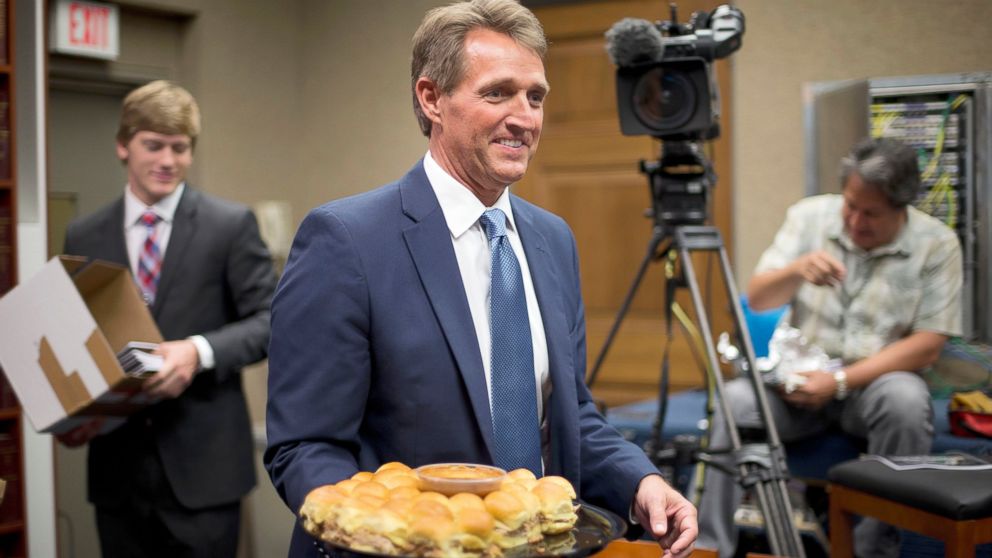$2 Billion of Your Dollars Wasting Away, Says Senator
Outlawed in 2010, earmarks still costing government cash.

— -- They may be have been outlawed in 2010, but Capitol Hill’s favorite way of getting money for their pet projects is still costing the government loads of cash.
A new report out today from Sen. Jeff Flake’s (R-AZ) office identifies billions of dollars in earmarks written into law before the ban that still cost the government years later.
“There’s a lot of money still tied up in earmarks,” Flake told ABC News. “Gratefully, we are not doing new earmarks, so the ban has worked pretty well. However, some of these old earmarks continue to be funded by the agencies. So that’s a problem.”
The practice allowed a senator or representative to write in money for a local project or “pet project.”
Flake’s office found that the 2005 Safe, Accountable, Flexible, Efficient Transportation Equity Act: A Legacy for Users (SAFETEA-LU), which included the now notorious “bridge to nowhere,” also included nearly 6,000 earmarks that have not been fully spent to date — totaling nearly $6 billion.
More than $2 billion of that sits unspent in the treasury and have come to have “orphan status,” meaning less than 10% was ever spent.
Because the money is allocated to earmarks, it cannot be spent on anything else, including replenishing the Highway Trust Fund, which doles out money for highway improvements but is due to expire next month.
“It’s like a check that’s been written to an entity or person that’s waiting to be cashed. You can’t spend the money that is used to back that up. And so that’s why we want to allocate that money back to trust fund,” he said.
One example from the report includes $600,000 for a Visitor Center in Cochecton, N.Y., but in 2010, local officials changed the location of the planned center, meaning the more than half-million dollars can’t be used, nor can it be re-purposed.
Other examples include situations where local or state governments must match funds but either don’t or can’t.
“After 10 years these earmarks have orphan status, and that’s what we’re proposing, that money simply be recaptured and put into the Highway Trust Fund,” he said. “So it would help significantly. That’s not small money.”
Flake’s office has introduced legislation to take these "orphan earmarks" more than 10 years old with less than 10% of their funds spent and return the money to the Highway Trust Fund for other projects.
The Highway Trust Fund received a two-month temporary extension last month and will expire in July. Estimates show it needs about $15 billion per year over six years to keep going, but members in both party admit it has been tricky to come to an agreement.
“Every bit helps. Every bit helps, $2 billion is a lot of money. And that’s four bridges to nowhere,” Flake said.
The fund comes from gas taxes and goes to repair highways and infrastructure throughout the country.
Some in Congress have been fighting to return to the practice of earmarking to help pass controversial legislation. Flake disagrees.
“We just want to remind people what a big waste a lot of this funding is, and it’s not just the money in the earmark, it’s the higher spending that that usually leverages, because earmarks were used usually to pass big appropriations bills," Flake said. “The problem with earmarks, with the highway bill was that so many of them didn’t relate to mobility or real road use. They were for museums, and projects that were really not related."




